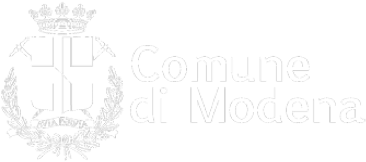Musei di Palazzo Pio (Museums inside the Palazzo dei Pio Castle)
Museo del Palazzo
The rooms on the main floor offers, beside the painted decorations on the walls of the rooms, dating from the mid-fifteenth century and the early years of the sixteenth century , work of Giovanni del Sega and Bernardino Loschi, court painters of Alberto III Pio, the exhibition of works from the museum's collection about the Renaissance culture in Carpi .
Overall, the collections are divided into three main groups: a core consisting of heterogeneous materials and Renaissance paintings, detached frescoes, pottery , terracotta friezes and ceiling , exposed within the path of the noble halls of the apartment , where objects find their historical context . The third core of the collection is the art gallery, which houses paintings and drawings from the fifteenth to the twentieth century.
Museo della città
The City Museum exhibits, in chronological order, artistic heritage and craftsmanship of the old town museum founded in 1898. This institution, in full positivist times, had collected as well as works of art, everything that expresses the activity and intelligence of men during the centuries Carpi's history. Pottery production, scagliola (stucco decoration) of Reinassance period, printed books and documents, but also architectural and decorative fragments of the city, up to machinery, tools and multimedia documentation of agricultural activity , the production of the chip and the most recent business activity of the textile clothing . A significant part of the nearly twenty thousand pieces present is constituted by donations from private collections.
Museo al deportato politico e razziale (closed for renovation works)
Since 1973, Palazzo dei Pio has a path dedicated to the dramatic period of the Second world war, that starts from the courtyard and spread to thirteen rooms on the ground floor.
The spaces of great emotional impact and suggestion are characterized by graffiti with works of great artists such as Longoni, Picasso , Guttridge , Cagli and Léger and phrases engraved on the walls taken from the letters of the condemned of the European Resistance .
In some reliquaries there are some items that belonged to prisoners in the concentration camps .
The tour ends in the Hall of Names where the names of more than thirteen thousand Italians who died in the concentration camps of Europe are graved on the wall.
The "courtyard of the stele" features sixteen high cement slabs inscribed with the names of the places of extermination camps of the Second World War.
Opening hours
From Tuesday to Friday 10 am – 1 pm; Saturday, Sunday and holidays 10.00 am - 6.00 pm.








